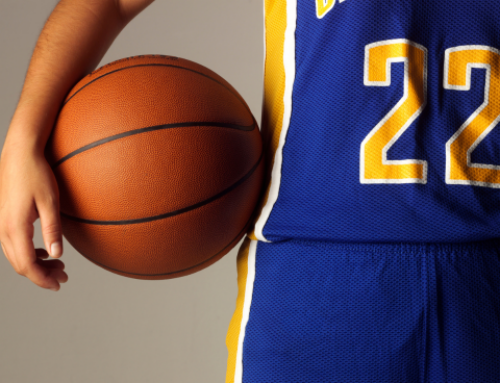Profile Posting Pointers

Related video: Differences Between Division I, II and III Athletics
Think MySpace is really your space? Think again. Besides friends, some college coaches have their eyes on popular social networking sites. So consider these posting pointers before throwing anything down.
One advantage of creating a profile on sites like MySpace and Facebook is the opportunity for exposure. However, it can also be damaging because, according to Nancy Nitardy, who has 14 years of head coaching experience for Division I colleges and universities, “these are not private spaces. Anybody has access to your information and can use it any way they want.”
College coaches, athletic directors and admission counselors could be viewing your profile, which is why you should double-think the content you include.
Content matters
“Most coaches are recruiting more than one athlete for the same position,” Nitardy explains. “During the recruiting process, if coaches see pictures of a crazy, wild kid online, they might assume that’s how the kid will act on campus—potentially not be the student-athlete they want.”
Think it’s not that serious? According to the NCAA’s Committee on Sportsmanship and Ethical Conduct, two student-athletes at Louisiana State University were kicked off the swimming and diving team after posting negative comments on Facebook about their coaches and team. A former offensive tackle from the University of Colorado at Boulder was cited for harassment after being accused of using a social networking site to send a racially threatening message to another athlete.
Info to use, Info to lose
If you’re trying to get recruited, keep your profile clean. Nitardy recommends spotlighting your best performances and highest level of competition [e.g., regional, state, national]. Club team participation, athletic awards, academic achievements, photos of on-field action and information about general interests, such as music and movies, can also be included.
Eye-catching content you shouldn’t include: photos in which you’re dressed inappropriately; references to alcohol, drugs and sex; and racial slurs or degrading remarks. Make sure you remove your phone number and home and email addresses, too.
To get your information to coaches, Nitardy recommends being proactive and “actually contacting them.” Send an email or write a letter that includes your info.
For tips about contacting coaches, check out Nitardy’s book, Get Paid to Play: Every Student Athlete’s Guide to Over $1 Million in College Scholarships [Kaplan, $17].
RECOMMENDED FOR YOU
MOST POPULAR
Profile Posting Pointers

Related video: Differences Between Division I, II and III Athletics
Think MySpace is really your space? Think again. Besides friends, some college coaches have their eyes on popular social networking sites. So consider these posting pointers before throwing anything down.
One advantage of creating a profile on sites like MySpace and Facebook is the opportunity for exposure. However, it can also be damaging because, according to Nancy Nitardy, who has 14 years of head coaching experience for Division I colleges and universities, “these are not private spaces. Anybody has access to your information and can use it any way they want.”
College coaches, athletic directors and admission counselors could be viewing your profile, which is why you should double-think the content you include.
Content matters
“Most coaches are recruiting more than one athlete for the same position,” Nitardy explains. “During the recruiting process, if coaches see pictures of a crazy, wild kid online, they might assume that’s how the kid will act on campus—potentially not be the student-athlete they want.”
Think it’s not that serious? According to the NCAA’s Committee on Sportsmanship and Ethical Conduct, two student-athletes at Louisiana State University were kicked off the swimming and diving team after posting negative comments on Facebook about their coaches and team. A former offensive tackle from the University of Colorado at Boulder was cited for harassment after being accused of using a social networking site to send a racially threatening message to another athlete.
Info to use, Info to lose
If you’re trying to get recruited, keep your profile clean. Nitardy recommends spotlighting your best performances and highest level of competition [e.g., regional, state, national]. Club team participation, athletic awards, academic achievements, photos of on-field action and information about general interests, such as music and movies, can also be included.
Eye-catching content you shouldn’t include: photos in which you’re dressed inappropriately; references to alcohol, drugs and sex; and racial slurs or degrading remarks. Make sure you remove your phone number and home and email addresses, too.
To get your information to coaches, Nitardy recommends being proactive and “actually contacting them.” Send an email or write a letter that includes your info.
For tips about contacting coaches, check out Nitardy’s book, Get Paid to Play: Every Student Athlete’s Guide to Over $1 Million in College Scholarships [Kaplan, $17].
RECOMMENDED FOR YOU
Create A Free Recruiting Profile Today!
CaptainU helps athletes & parents not only be proactive but also to manage and take control of their entire recruiting journey.











